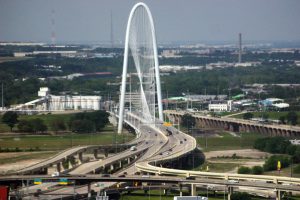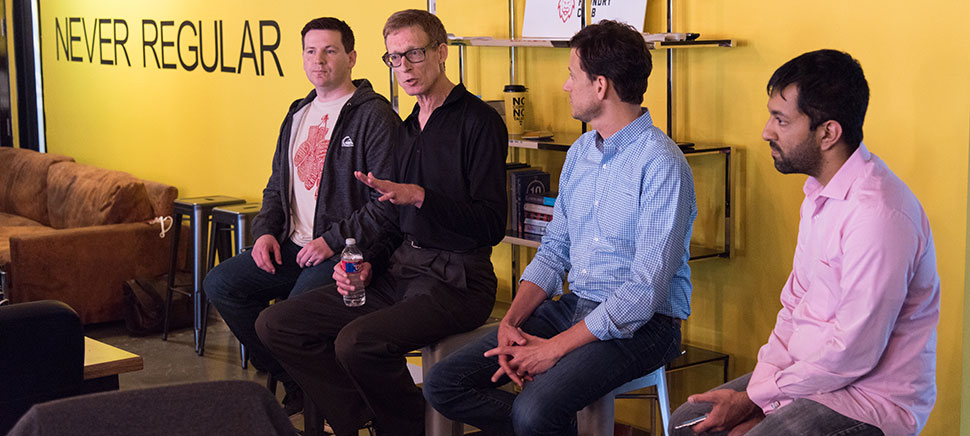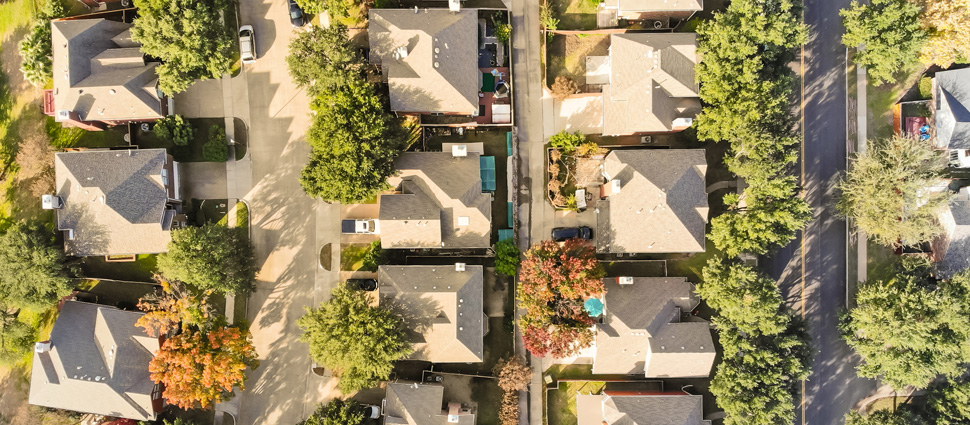SENSORS, SELF-DRIVING CARS WILL CHANGE HOW WE GET AROUND
Roads and ground transportation are primed for rapid innovation and disruption, according to experts who spoke at the Dallas Startup Week seminar Wednesday afternoon.
“We’re traveling the same speed as your grandparents did,” said Tom Bamonte, a transportation innovator who has developed technology for tolling authorities. “They have the same capacity. It’s a very rigid organization structure. It’s ripe for change.”

What will the future hold for highways and transportation in DFW? (Photo by Lance Murray)
For proof, Bamonte held up a “dumb” traffic bump with a reflector on it. He said roadway infrastructure should incorporate the latest technology, such as sensors that could communicate with autonomous vehicles. The sensors could even provide traffic information or pick up data from a connected car.
“The infrastructure itself will have to change from what we can see and feel to what’s navigable to machine readable technology,” Bamonte said.
Self-driving vehicle technology exists today, but is held up by regulations and cost. The Tesla Model S and X both have autonomous capabilities, but their cost puts them out of reach to the average driver. The Tesla Model 3, which was unveiled last month, has self-driving capabilities and promises to be priced at about $35,000 when it hits the streets in late 2017.
The dashboard of the Model 3 hints at the future of driving with all the components on one flat-screen monitor.
ON-DEMAND RIDES CHANGING FACE OF TRANSPORTATION
“You no longer need a dash in front of you. It’s more of an operating system with an entertainment center,” said Kirk Ballou, CEO of TouchTitans.com, a mobile UX, design and development company.
Another big revolution in transportation was sparked by on-demand driving companies such as Uber.
Blake Burris of Future Mobility said shared driving will be the next big revolution. He envisions vans that pick up multiple passengers that could be hailed on demand using an app.
“We’re on a path that’s moving us closer to shared transportation mobility. That’s just the tip of the iceberg,” Burris said.
“We’re on a path that’s moving us closer to shared transportation mobility. That’s just the tip of the iceberg.” – Blake Burris
Bamonte said people need to change the way they think about highway capacity because it’s essentially, “Soviet-style allocation of scarce resources.”
He said more roads need surge pricing where it costs more to drive during rush hour, which encourages people to stay off the highway or rideshare.
This already exists in North Texas’ TEXpress Lanes, which charge higher tolls during peak rush hour periods and offer discounts for drivers who carpool.
The future could be autonomous, self-driving pods that not only take drivers around town but cross country. That could disrupt the airline industry, which is plagued by security checkpoints and baggage check-ins. A new transportation service would take passengers door-to-door.
And by riding in a vehicle you don’t own doesn’t mean you’re sacrificing personal comfort, either. Experts predict that in the future, people will have so-called traveler profiles with their music and other settings no matter which vehicle they get in.
SMARTER VEHICLES PRODUCE MORE DATA
The smarter vehicles get, the more data they produce, which raises a host of other concerns over who owns that data. It could broadcast driver habits, such as what they listen to, where they shop, and driving habits.
Demographic data is invaluable to advertisers. But, it also raises privacy concerns in much the same way our smartphones do.
“There are different players interested in each layer,” Bamonte said. “Can it be monetized?”
Or, more importantly, should it?
“Basically, you’re exploiting what I do in my car,” Bamonte said.
For a daily dose of what’s new and next in Dallas-Fort Worth innovation, subscribe to our Dallas Innovates e-newsletter.




























